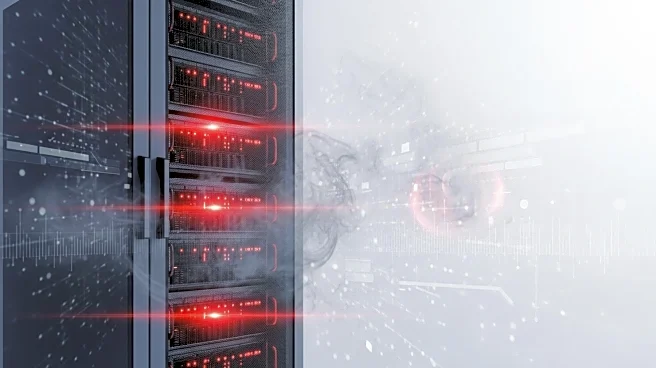What is the story about?
What's Happening?
A fire at the National Information Resources Service data center in Daejeon, South Korea, led to a nationwide outage of hundreds of government services. The incident occurred when a lithium battery exploded during maintenance work, causing the fire to start around 8:15 p.m. local time on Friday. The blaze disrupted computer servers for about 70 government systems initially, but to prevent overheating, the remaining 647 systems were shut down. As a result, ministry websites, postal services, and mobile identification cards were affected, causing significant disruptions in obtaining official documents and processing mail.
Why It's Important?
The fire and subsequent outages highlight the vulnerability of critical infrastructure to technical failures, especially those involving energy storage systems like lithium batteries. The incident underscores the importance of robust safety protocols and contingency plans to ensure continuity of essential services. The disruption impacts not only government operations but also citizens who rely on these services for daily activities, potentially leading to delays and inefficiencies. This event may prompt a reevaluation of safety standards and emergency response strategies in data centers globally.
What's Next?
Efforts are underway to restore the affected systems and services, with officials working over the weekend to bring them back online. The incident may lead to increased scrutiny of data center safety measures and could result in policy changes or technological upgrades to prevent similar occurrences in the future. Stakeholders, including government agencies and technology providers, may collaborate to enhance infrastructure resilience and improve emergency response capabilities.















